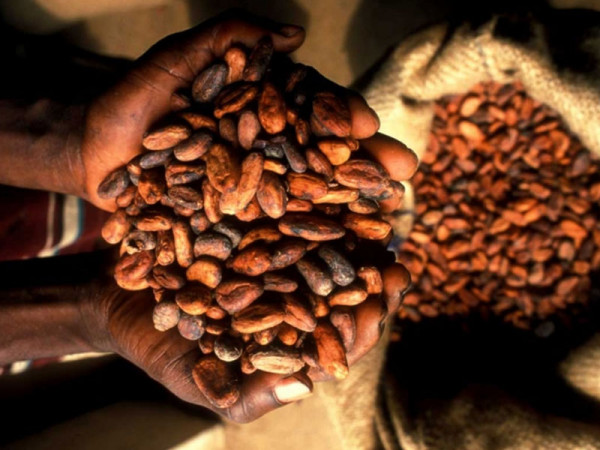The Ghana Cocoa Board (COCOBOD) has given hint of an unprecedented price increase in cocoa beans in the first week of October this year.
The Chief Executive Officer (CEO) of COCOBOD, Mr Joseph Boahen Aidoo, who gave the hint during a tour of three cocoa growing communities in the Eastern Region last Thursday, was, however, silent on how much increment farmers should expect.
The price paid to cocoa farmers in the country has remained unchanged for the past three years due to the low price of the commodity on the international market and farmers have, therefore, been expectant.
Mr Aidoo was accompanied on his tour by some directors of COCOBOD.
They toured Pramkese in the Kwaebibirem municipality, Kokobeng in the Akim Swedru District and Asuoso in the West Akim municipality, where they interacted with farmers as part of efforts by COCOBOD to follow up on its productivity enhancement programmes (PEPS).
Mr Aidoo and his entourage met with more than 1,000 cocoa farmers and cooperatives at the three separate meetings.
Roads
At the durbar with the farmers, Mr Aidoo announced that COCOBOD had earmarked about 40 roads to be constructed in selected cocoa growing communities, not just in response to the many complaints about the poor conditions of roads but also because there was the need to improve socio-economic facilities.
“There have been many complaints about poor road conditions and we have seen it ourselves. The roads are in a very terrible state, making it difficult for cocoa inputs such as fertiliser to come to farmers and for cocoa to get to the buying centre,” he said.
According to him, the Pramkese-Kade road, which is 11 kilometres, would be added, considering its poor state.
“We used the road; it was difficult and dusty; we understand what you go through to bring your cocoa to the market centre,” he stated.
Farmers in the Kwaebibirem area in the Eastern Region produce a lot of cocoa.
Modern way of farming
The COCOBOD CEO noted that it had become necessary to introduce sound agricultural practices into the cultivation of cocoa, saying that “weeding the farm is better than using weedicides”.
Pruning, he said, was also key to enhancing productivity.
“We cannot continue to let our farmers use the machete. On the average, our cocoa farmers are 55 years and above and because of that COCOBOD has procured 100,000 weed slashers and we expect them latest by the end of October. We want our farmers to move away from the traditional way of farming to a more modern way of farming,” he stated.
Mr Aidoo announced that the floor price of cocoa had begun to appreciate and advised cocoa farmers against using children as farm hands.
“We will not encourage cocoa farms in forest reserves. It is against the law. Forest reserves serve as a source of drinking water for a larger population,” he said.
He also announced that COCOBOD was set to replace the existing scales used by marketing clerks with electronic ones to prevent farmers from being cheated of their cocoa beans.
Employment
The Kwaebibirem Municipal Chief Executive (MCE), Mr Seth Antwi Boasiako, said farming practices such as pruning, mass spraying and hand pollination had created employment for 918 youth in the municipality.
He, however, appealed to the COCOBOD authorities to expedite payment to the young people engaged in those exercises, so that they could be motivated to work more effectively.



